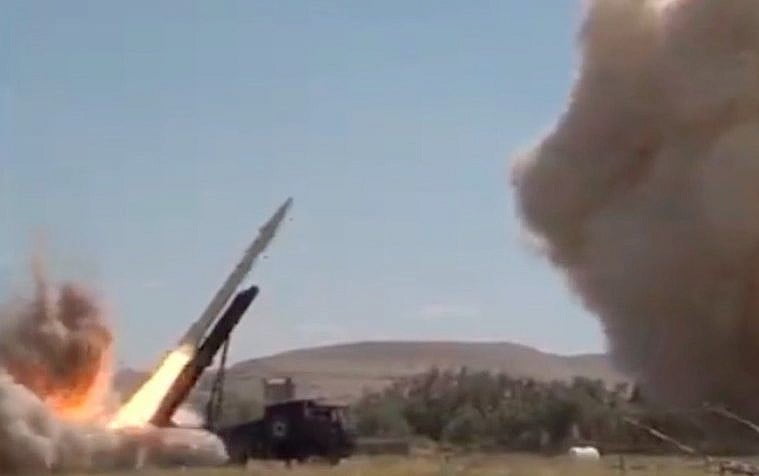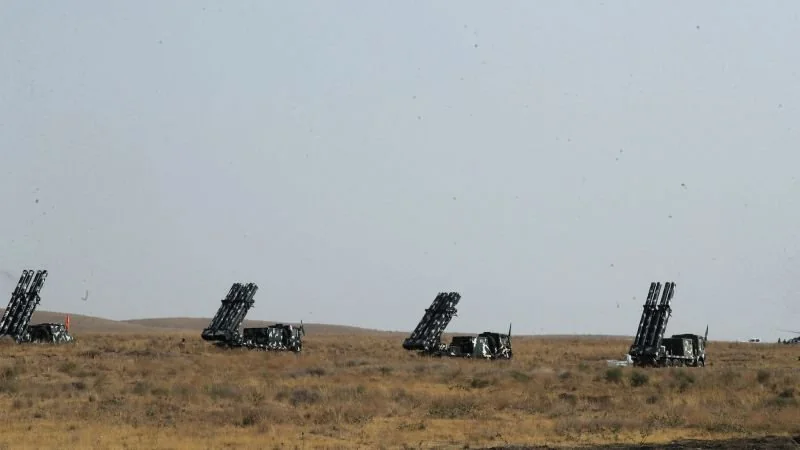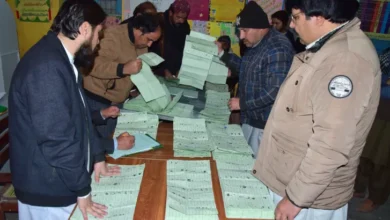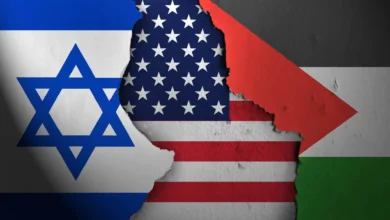Pakistan denounces the “unprovoked violation” of the deadly Iranian missile hits on its territory.

Two children were killed in an Iranian airstrike inside Pakistani territory on Tuesday. Pakistan fiercely denounced the attack as an “unprovoked violation of its airspace” and threatened retaliation.
Iran’s state-aligned Tasnim news agency said that it destroyed two strong points of the Sunni militant team Jaish al-Adl, also known as Jaish al-Dhulm in Iran, in the Koh-e-Sabz region of Pakistan’s southwest Baluchistan province, using “precision missile and drone strikes.”
This is the latest in a string of attacks in the Middle East as Israel’s war in Gaza threatens to turn into a larger regional conflict. On Monday, Iran launched missiles into northern Iraq and Syria. The attack on Pakistani territory resulted in the deaths of “two innocent children,” according to the Foreign Ministry of Pakistan, which also threatened Iran with “serious consequences.”
Table of Contents
According to the statement, Iran “unprovokedly violated its airspace… inside Pakistani territory” during the airstrike. The ministry stated, “What is more alarming is that this illegal act took place despite the fact that Pakistan and Iran have multiple channels of communication.”
Pakistan, which possesses nuclear weapons, called on the Iranian charge affairs after the strike and lodged a “strong protest” with a senior official in Iran’s Foreign Ministry in Tehran. Pakistan stated that Iran bears the responsibility for the consequences.
Late on Tuesday, the militant group Jaish Al-Adl claimed that the Iranian Revolutionary Guards had destroyed two homes where its fighters’ wives and children resided by using six attack drones and several rockets.

Four people suffered injuries and two girls died, according to officials in the province of Baluchistan. The girls, who were eight and twelve years old, perished in homes that were damaged during the attack in Kulag’s Koh-e-Sabz village, approximately 37 miles (60 kilometers) away from Panjgur region, on the Tuesday night, according to Mumtaz Khetran, the deputy commissioner for the district. Khetran added that one of the nearby mosques was targeted and damaged during the strikes.
About 50 kilometres (31 miles) from Pakistan’s border with Iran, Koh-e-Sabz is known to be the residence of Mullah Hashim, the former second-in-command of Jaish-ul-Adl. Hashim was killed in 2018 in fighting with Iranian forces at play in Sarawan, an Iranian area next to Panjgur.
According to Tasnim, Iran claimed last month that Jaish Al-Adl militants stormed the police station in the province of Sistan as well as Baluchistan, killing eleven Iranian police officers. The Army of Justice, also known as Jaish Al-Adl, is a militant separatist organization that performs on both ends of the border as well as admits to being behind attacks on Iranian targets in the past. The province of Sistan and Baluchistan, Iran, wants to become independent.
The attacks in Pakistan happened the day after ballistic missiles fired by Iran’s Revolutionary Guards claimed to be directed at “anti-Iran terror groups” in Syria and what it believed to be a spy base for Israel’s Mossad intelligence agency in Erbil, northern Iraq.
Iran said that the strikes in Iraq were a reaction to Israeli attacks that it claimed killed commanders of the Iranian Revolutionary Guard. It also said that targets in Syria were connected to the recent twin bombings in Kerman, which occurred during a memorial service for Qasem Soleimani, the commander of the Quds Force, and resulted in numerous casualties.
A spokesman for the Iranian foreign ministry, Nasser Kanaani, defended the strikes in an announcement on Tuesday, calling them a “precise and targeted” operation meant to discourage security risks. Fears that Israel’s war in Gaza may escalate into a full-scale Middle East conflict with dire humanitarian, political, and economic ramifications will intensify in the wake of Iran’s attacks.

The United Nations stated that “security concerns must be tackled through dialogue, not strikes,” and the United States denounced the attacks in Syria and Iraq as “reckless” and imprecise.
Iraq said on Tuesday that it had complained to both the UN and the UN Security Council. According to Iraq’s Foreign Minister Fuad Hussein, Erbil, the capital of the semi-autonomous Kurdistan region, does not have any Mossad-affiliated organizations.
Fears of a worsening conflict
According to the Ministry of Health run by Hamas, Israel’s continuous bombing of Gaza in retaliation for the terror attacks on October 7 has killed over 24,000 people and caused widespread devastation, with civilians constantly facing the possibility of dying from an airstrike, starvation, or disease.
As Israel’s forces and their allies are targeted by attacks from Iran’s allies and proxies, known as the “axis of resistance,” the conflict has intensified hostilities throughout the region.
As reported by a defense official to the news organization the US military resumed its strikes on Houthi targets inside Yemen on Tuesday, focusing on anti-ship ballistic missiles under the rebel group’s control that is supported by Iran.
Only a few hours after that, the official stated the ship M/V Zografia, a bulk carrier flying the Maltese flag, was struck by a missile fired by the Houthis into maritime lanes across the southern waters of the Red Sea.
At least three rounds of US military attacks have been launched against the Houthis’ systems since last Thursday, when the US and the UK jointly carried out an operation that targeted the Houthis’ command and control centers and weapons depots, which they use to launch missile as well as drone attacks on advertising ships in the Red Sea.

Additionally, Tehran’s proxies have engaged in repeated drone and rocket attacks against US troops in Syria and Iraq. A leader of a proxy organisation supported by Iran was killed by an American strike in Baghdad last week, which Washington attributed to the group’s attacks on US personnel stationed there.
And across the border in Lebanon, fighting has escalated among Israel and the potent organization Hezbollah, which is supported by Iran. Hassan Nasrallah, the leader of Hezbollah, pledged on Sunday to continue fighting Israeli forces along the border with Lebanon until the Israeli obnoxious in Gaza ends.
Related Posts of Author
Why US stop shorts Ceasefire in Gaza, but UN approves Aid.
Israel-Gaza war in real time: 70 Israeli soldiers killed in a “massacre” in Gaza.
Israel Gaza war: Blinken demands for the protection of civilians, dozens of deaths in Gaza.




